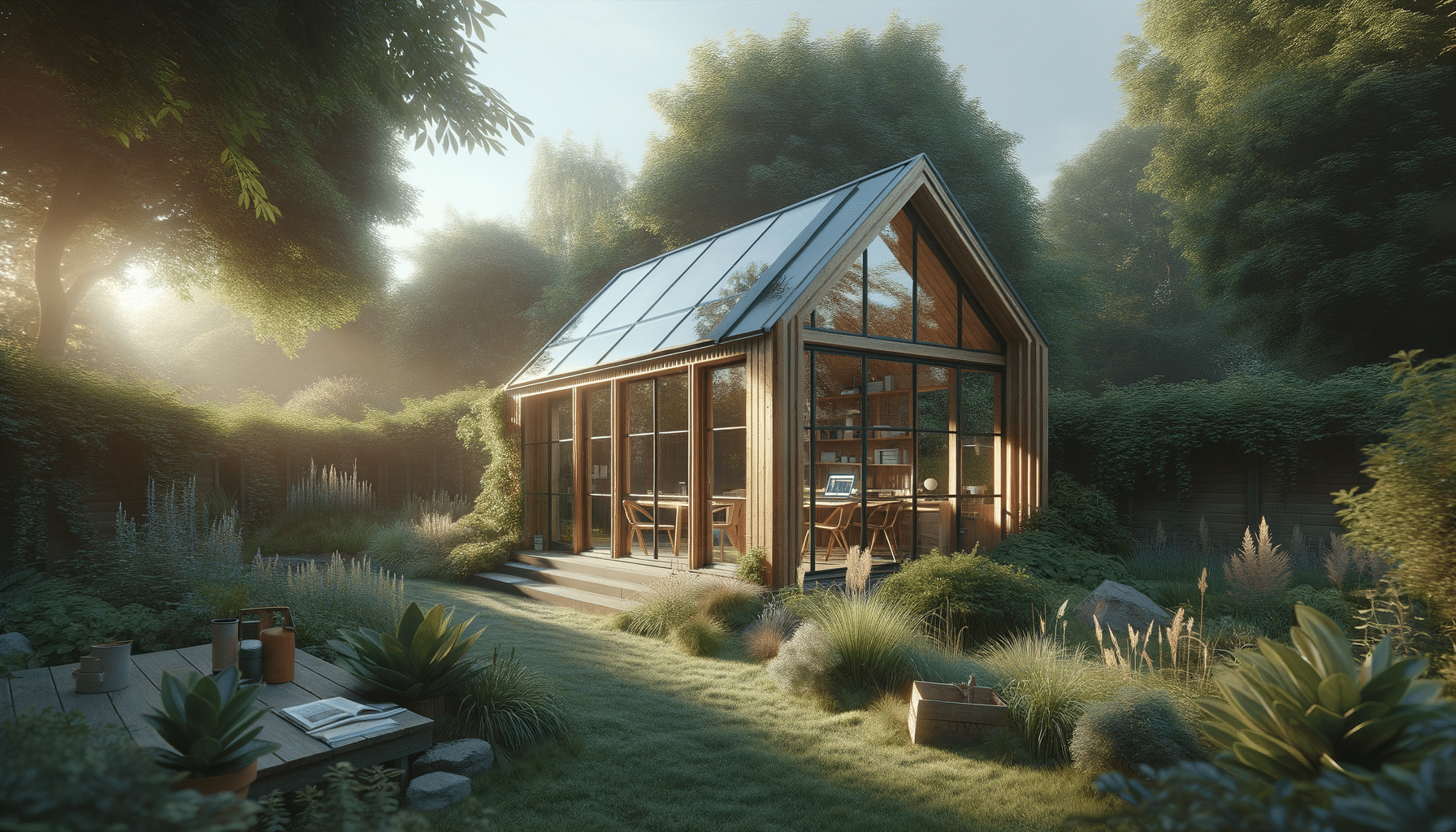
a buyer’s guide to choosing a garden office
Understanding the Benefits of a Garden Office
In today’s increasingly remote work environment, having a dedicated workspace at home is more important than ever. A garden office offers a unique solution, combining the tranquility of nature with the functionality of a professional workspace. By situating your office in the garden, you can escape the distractions of home life and immerse yourself in a peaceful setting that enhances productivity.
Garden offices are not merely about aesthetics; they offer practical benefits too. They can increase your property value and provide additional space without the need for extensive home renovations. Moreover, with the rise of sustainable living, many garden offices are designed to be eco-friendly, incorporating materials that minimize environmental impact.
Among the advantages of a garden office, you will find enhanced mental well-being. Being surrounded by nature can reduce stress and boost creativity. The physical separation from your home can also help maintain a healthy work-life balance, an aspect crucial for many remote workers.
- Increased property value
- Enhanced mental well-being
- Eco-friendly design options
Understanding these benefits is the first step in choosing a garden office that aligns with your personal and professional needs. Whether you require a simple space for occasional use or a fully equipped office for daily operations, a garden office can be tailored to meet your specific requirements.
Key Considerations When Choosing a Garden Office
When planning a garden office, several key factors should guide your decision. First, consider the purpose of the office. Are you looking for a quiet place to focus, or do you need a multifunctional space that can also serve as a guest room or workshop? Your intended use will influence the size, design, and features of your garden office.
Another critical aspect is the available space in your garden. Measure the area where you plan to place the office, ensuring it fits harmoniously within the landscape. Consider the orientation too, as natural light can significantly impact the ambiance and energy efficiency of your office.
Climate considerations are also essential. Depending on your location, you may need to think about insulation, heating, and cooling systems to ensure comfort year-round. Additionally, think about connectivity, such as electricity, internet, and plumbing if required.
- Purpose and functionality
- Available space and orientation
- Climate and connectivity considerations
By taking these factors into account, you can design a garden office that not only meets your immediate needs but also adapts to future changes in your work style or living arrangements.
Design and Aesthetic Choices for Your Garden Office
The design of your garden office should reflect your personal style while complementing the existing landscape. One of the top options is to choose a design that seamlessly blends with nature, using natural materials like wood or stone. These materials not only provide durability but also enhance the visual appeal of your garden office.
Consider the architectural style of your home and garden. A contemporary garden office with sleek lines and large windows might suit a modern home, while a more rustic design could be appropriate for a traditional setting. The key is to ensure that your garden office feels like a natural extension of your home environment.
Color schemes play a vital role in the aesthetic appeal. Neutral tones can create a calming atmosphere, while bold colors might inspire creativity and energy. Incorporate greenery through vertical gardens or potted plants to further enhance the connection with nature.
- Use of natural materials
- Architectural harmony
- Color and greenery integration
Ultimately, your garden office should be a space where you feel comfortable and inspired, making design and aesthetics crucial components of the decision-making process.
Budgeting for Your Garden Office
Budgeting is a fundamental aspect of choosing the right garden office. Costs can vary widely depending on size, design, materials, and additional features. Start by setting a realistic budget that considers both initial construction and ongoing maintenance expenses.
One effective approach is to prioritize your needs. Determine which features are essential and which are optional. For instance, if climate control is crucial, allocate more budget towards insulation and heating, while perhaps opting for simpler furnishings initially.
Researching different suppliers and comparing prices can help you find a good balance between quality and cost. Consider the long-term savings of investing in energy-efficient solutions, which may have higher upfront costs but reduce utility bills over time.
- Set a realistic budget
- Prioritize essential features
- Consider long-term savings
By carefully planning your budget, you can ensure that your garden office is both affordable and tailored to your specific needs, providing value for years to come.
Legal and Planning Permissions
Before embarking on your garden office project, it’s important to understand the legal and planning permissions required. Regulations can vary depending on location, so it’s advisable to consult with local authorities or a planning consultant to ensure compliance.
In many areas, small garden offices may fall under permitted development rights, meaning formal planning permission is not necessary. However, there are often stipulations regarding size, height, and proximity to boundaries that must be adhered to.
For larger structures or those in conservation areas, obtaining planning permission may be required. This process can involve submitting detailed plans and obtaining approval, which can take time and potentially impact your project timeline.
- Consult local authorities
- Understand permitted development rights
- Prepare for potential planning permission
By addressing legal and planning considerations early in the process, you can avoid delays and ensure that your garden office project proceeds smoothly and legally.


